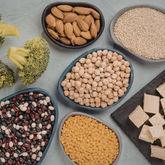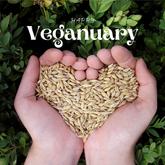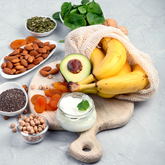In a world where dietary preferences are as diverse as the landscapes we inhabit, plant milk has emerged as a versatile and enticing alternative to traditional dairy milk. But what exactly is plant milk, and how is it created? From humble seeds to wholesome grains, the journey from plant to milk is a fascinating one. In this blog, we'll embark on a captivating exploration to understand the essence of plant milk—what it's made from, its nutritional benefits, and how it's transforming the way we enjoy our daily beverages.
Plant Milk: A Nutrient-Rich Alternative
Plant milk, also known as non-dairy milk or alternative milk, is a creamy and nourishing beverage derived from various plant sources. It offers a wholesome substitute for conventional dairy milk and serves as a boon to those with lactose intolerance, dairy allergies, or simply those seeking a plant-based lifestyle. The beauty of plant milk lies in its diverse origins, each lending its unique flavors and nutritional profiles to the final product.
Key Ingredients in Plant Milk

- Nuts: Nuts like almonds, cashews, and walnuts are popular choices for making nut-based plant milk. These nuts are used to create a milk-like consistency.
- Seeds: Seeds such as sunflower seeds, hemp seeds, and pumpkin seeds can also be used to create plant milk. They produce a subtly nutty-flavored milk.
- Grains: Grains like oats, rice, and quinoa are transformed into grain-based plant milk. This type of milk often has a mild, neutral flavor.
- Legumes: Soybeans are the primary choice for legume-based milk. Soy milk is known for its versatility and is commonly used in cooking and baking.
Benefits of Plant Milk
- Nutritional Diversity: Different plant sources offer a range of nutrients, from healthy fats and protein to vitamins and minerals.
- Digestive Ease: Plant milk is often gentler on digestion, making it an excellent option for those with sensitive stomachs.
- Allergen-Friendly: Plant milk is a great alternative for individuals with dairy allergies or lactose intolerance.
- Sustainability: Plant milk production generally has a lower environmental impact compared to dairy farming.

In conclusion, plant milk is a versatile and nutrient-rich alternative to traditional dairy milk, catering to diverse dietary preferences. From nuts, seeds, grains, to legumes, the journey from plant to milk is fascinating and beneficial. It offers advantages such as diverse nutrition, easy digestion, allergen-friendliness, and sustainability. Whether you're lactose intolerant, have dairy allergies, or simply prefer a plant-based lifestyle, plant milk has something for everyone. For convenient homemade plant-based milk, try the Milky Plant—a kitchen appliance that makes fresh milk in just three minutes with the press of a button.















